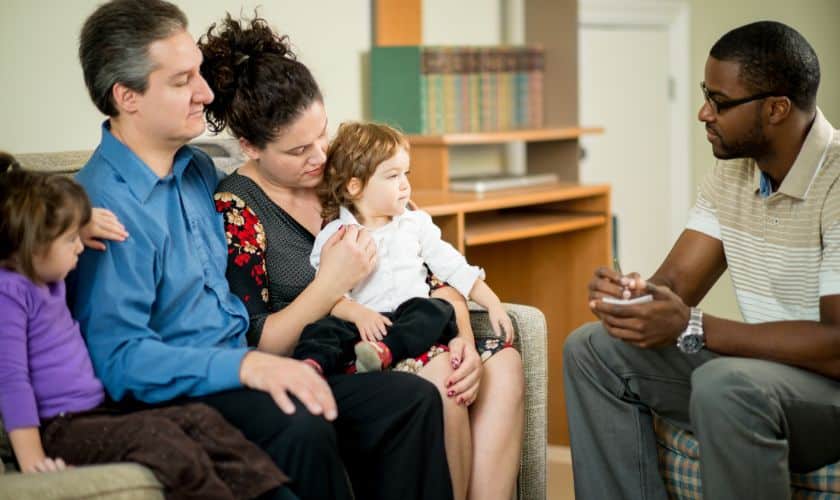
By Goodings Grove Psychology Associates | August 11, 2023
Families are intricate webs of relationships, emotions, and histories. However, these connections can sometimes become strained due to conflicts and misunderstandings. Family therapy, a form of psychological treatment, offers a guiding light through these challenges. Let’s delve into the five stages of family therapy, a transformative process that helps families rebuild bonds, communicate effectively, and find healing.
1. Engagement and Rapport Building
The first stage lays the foundation for the therapeutic journey. Therapists establish a safe and welcoming environment, allowing family members to open up about their concerns. Building rapport and trust is crucial for effective therapy. Families in distress find solace in sharing their experiences, while therapists listen attentively to grasp the dynamics at play.
2. Assessment and Understanding
During this stage, therapists dive deep into the family’s history, roles, and communication patterns. By understanding the root causes of conflicts, therapists gain insights that guide the therapeutic approach. Family members learn to see beyond surface-level disagreements, recognizing deeper emotional triggers. This understanding paves the way for addressing underlying issues.
3. Restructuring and Communication Enhancement
Effective communication is the cornerstone of a healthy family dynamic. In this stage, therapists teach families new ways to communicate and interact. The focus is on active listening, respectful expression, and validation of each member’s feelings. By replacing negative communication patterns with positive ones, family members begin to understand each other better, fostering empathy and reducing conflict.
4. Resolution and Healing
As communication improves, the process moves toward resolving conflicts and fostering healing. Family therapy provides a space to address pent-up emotions and unresolved issues. Family members learn to manage conflicts constructively, while therapists guide them through the process of forgiveness and letting go. This stage encourages empathy, growth, and the emergence of stronger bonds.
5. Integration and Maintenance
The final stage is about ensuring lasting change. Therapists help families integrate the skills they’ve acquired into their daily lives. Families practice effective communication, conflict resolution, and empathy outside the therapy sessions. Therapists provide guidance on handling potential setbacks, ensuring the progress made during therapy remains steady.
Goodings Grove Psychology Associates in Homer Glen offers a comprehensive approach to family therapy, guiding families through five distinct stages: Engagement, Assessment, Restructuring, Resolution, and Integration—guiding families through healing and growth. With the support of skilled therapists, families can mend broken relationships, nurture healthy communication, and find harmony. Remember, the journey may be challenging, but the destination—a united and resilient family—is worth every step.



